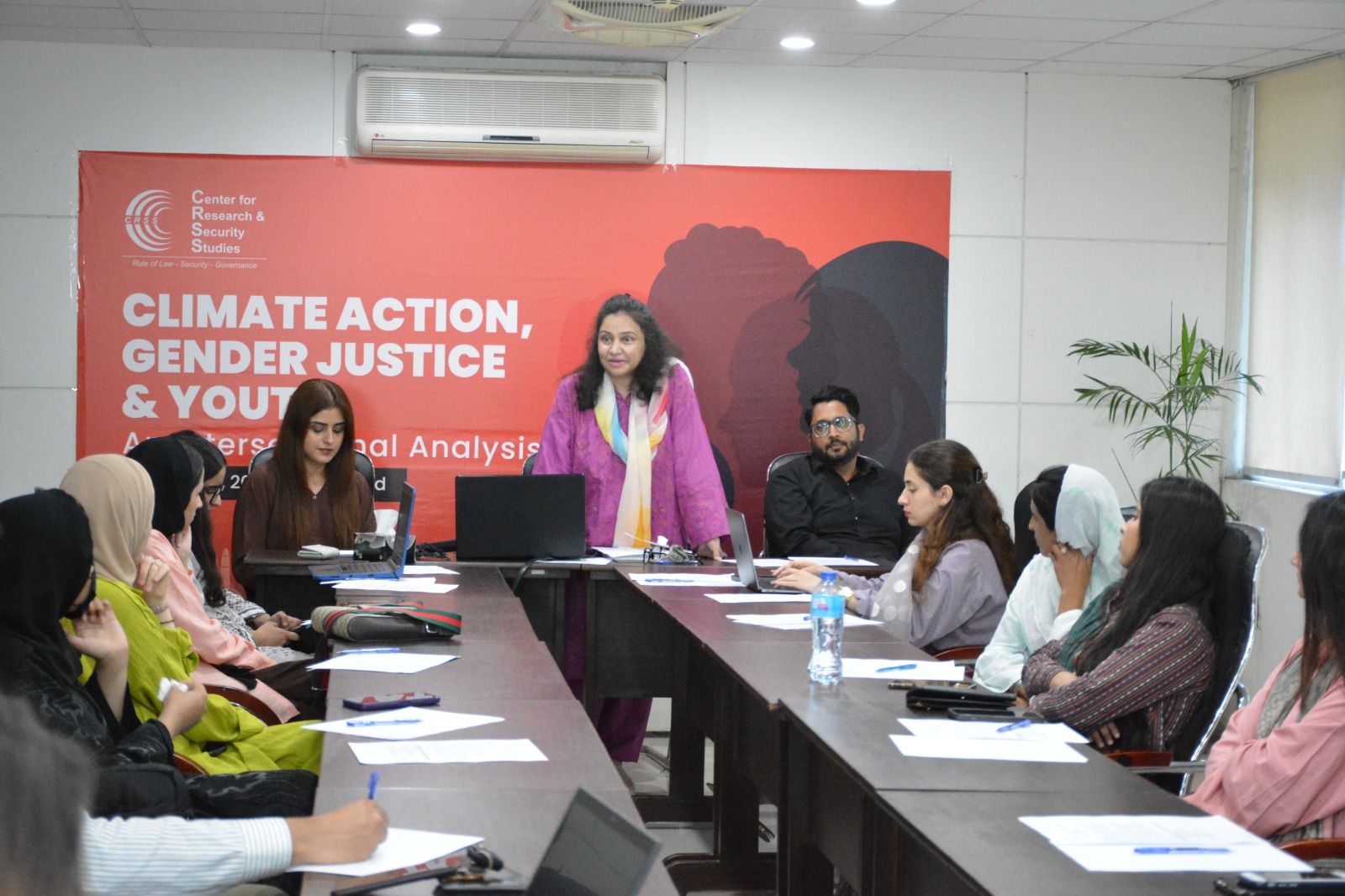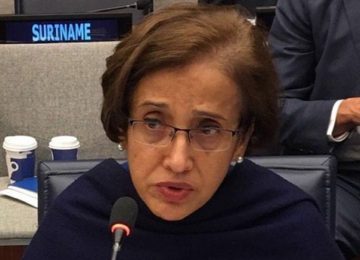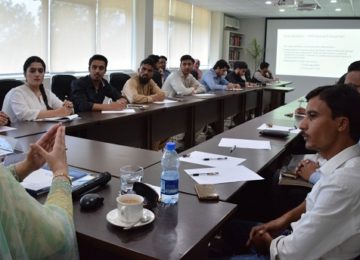Climate change and gender-based violence (GBV) are two of the most critical challenges our world faces today. But what happens when these crises collide? The harsh reality is that the link between them is disturbingly underexplored, leaving marginalized communities to suffer in silence.
To tackle this urgent issue, the Center for Research and Security Studies (CRSS) hosted a thought-provoking dialogue titled “Climate Action, Gender Justice and Youth: An Intersectional Analysis.” The event was a wake-up call, shedding light on how environmental crises worsen vulnerabilities, particularly for women and girls, and urging youth to take the lead in addressing these challenges.
Dr. Rukhsanda Perveen, a social development expert with years of frontline experience, delivered the keynote. Speaking to young climate activists and students from diverse backgrounds, she vividly described the “dark link” between climate change and GBV. In humanitarian disasters, like the devastating 2011 floods in Baluchistan, families desperate for survival tragically traded their daughters for safe passage. This gut-wrenching example illustrates how environmental catastrophes disproportionately hurt women and girls, deepening the urgency for solutions.
One major focus of the dialogue was the glaring lack of youth involvement in policy-making, especially on issues like climate change’s impact on women. Dr. Perveen emphasized that GBV goes far beyond violence against women; it’s about power imbalances that affect all genders. In Pakistan, these gender biases often start before birth, with practices like prenatal sex selection and feticide being disturbingly common.
The conversation took a deeper dive into how GBV and domestic violence are often normalized and even denied within communities. Many participants shared personal experiences, with one Afghan attendee bravely recounting her fight for education despite her family’s resistance. These stories echoed the global challenges women face, especially in societies bound by conservative norms.
By the end of the discussion, two key points were clear. First, young people have both the power and responsibility to challenge societal norms and advocate for change. Dr. Perveen called on youth to raise awareness at the national level and push for solutions that protect the most vulnerable. Second, it’s vital to break down the structural barriers preventing progress in both climate adaptation and GBV prevention. This means pushing for policies that prioritize marginalized communities and ensuring youth are at the center of these conversations.
The event discussion made one thing clear: youth are not just the future—they are the present. By taking action now, they can help shape a more just and sustainable world where no one is left behind.








